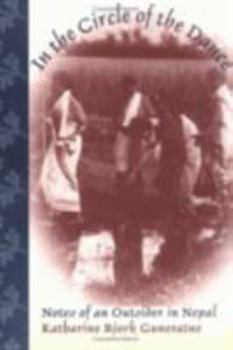In the Circle of the Dance
Select Format
Select Condition 
Book Overview
Feeling initially aimless and out of place in rural Nepal where she accompanied her anthropologist husband for a year of fieldwork, Katharine Bjork Guneratne turned to writing to make sense of her sojourn in the shadow of the Himalaya. The resulting book is both an acute portrait of a village and an intimate account of her struggles to adapt to a different way of life. Like the best cultural travel narratives, In the Circle of the Dance draws on the author's experiences to illuminate both exterior and interior worlds.
Bjork's book is in many ways a primer on the realities of fieldwork, from setting up house to participating in the work of the village women to finding ways to communicate across cultural divides. It describes how this outsider achieved a gradual and provisional inclusion in the community, an inclusion represented by her participation in a traditional women's circle dance. The book also depicts the effects of modernization and tourism on a society that remained closed to the West well into this century, while offering comparative insights about wider South Asian cultures.
The author's lyrical, frequently moving descriptions of everyday life guide her readers through the stages of her cultural apprenticeship. In the end, as Bjork joins the circle dance, she is a stranger to the community still, but a familiar and welcome one.





